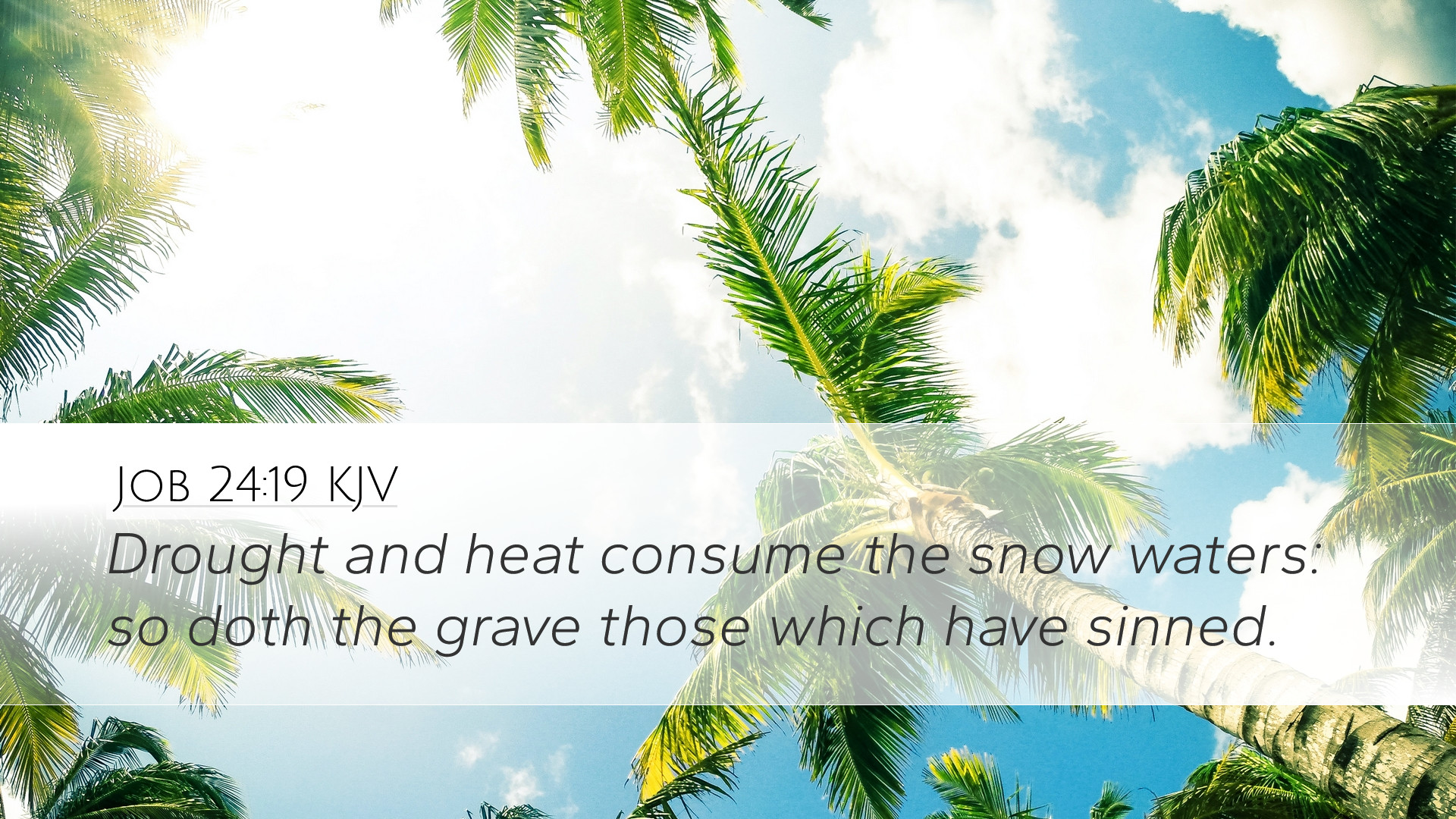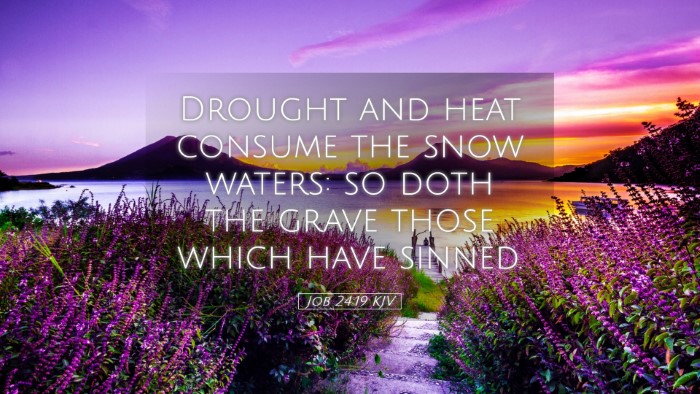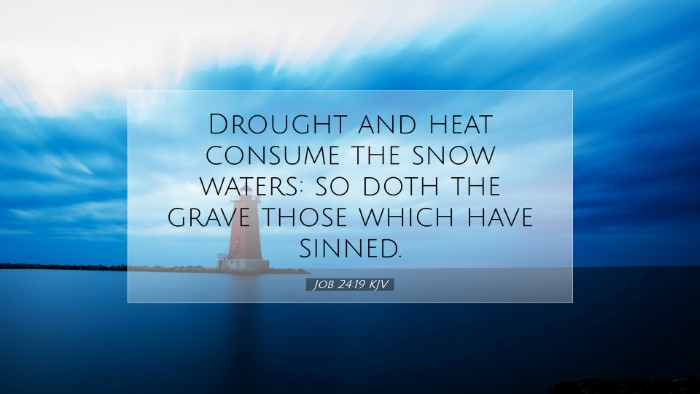Old Testament
Genesis Exodus Leviticus Numbers Deuteronomy Joshua Judges Ruth 1 Samuel 2 Samuel 1 Kings 2 Kings 1 Chronicles 2 Chronicles Ezra Nehemiah Esther Job Psalms Proverbs Ecclesiastes Song of Solomon Isaiah Jeremiah Lamentations Ezekiel Daniel Hosea Joel Amos Obadiah Jonah Micah Nahum Habakkuk Zephaniah Haggai Zechariah MalachiJob 24:19
Job 24:19 KJV
Drought and heat consume the snow waters: so doth the grave those which have sinned.
Job 24:19 Bible Commentary
Commentary on Job 24:19
Job 24:19 states: "Drought and heat consume the snow waters: so doth the grave those which have sinned." This verse lies within a broader discourse where Job reflects on the justice of God in light of human suffering, questioning the perceived prosperity of the wicked despite their wrongdoing.
Introduction
The Book of Job presents profound themes of suffering, justice, and the mystery of divine providence. This particular verse encapsulates the essence of Job's plight as he grapples with the apparent discrepancies in the moral order of the universe. Commentators such as Matthew Henry, Albert Barnes, and Adam Clarke provide deep insights into the implications of this verse.
Contextual Analysis
Job 24 is a continuation of Job’s response to his friends who insist that suffering is a direct result of sin. Here, Job asserts that the wicked often escape immediate retribution for their actions.
- Job's Lamentation: Job's speeches throughout this chapter articulate a sense of despair and confusion. He observes the wicked prospering while the righteous suffer.
- The Role of Divine Justice: Job underscores that God does not always punish sinners in observable time, which challenges the simplistic understanding of retributive justice.
Commentary Insights
Matthew Henry
Matthew Henry emphasizes the imagery of natural elements. He suggests that just as drought and heat consume the snow waters, leading to scarcity, so too does the grave consume those who sin. This shows the inevitable consequence of sin—death—while also highlighting the transient nature of life and earthly pleasures.
Albert Barnes
Albert Barnes draws attention to the grave's role in human existence. He notes that the grave, symbolizing death, swallows the sinner as naturally as the dry heat consumes the melted snow. This imagery serves as a powerful reminder of mortality illustrating that all men, regardless of their earthly situations, will inevitably face death.
Adam Clarke
Adam Clarke offers a detailed etymological perspective of the terms used in this passage. He explains how the word for "grave" signifies not only the physical grave but represents the eternal separation from God that awaits the unrepentant. Clarke also suggests that this verse serves as a moral lesson—indicating that rejection of God leads to dire consequences.
Theological Implications
The verse poses critical questions about divine justice and the human condition. Its implications extend into various theological discussions:
- Justice and Suffering: The seeming lack of justice in the world raises theological questions regarding God’s sovereignty and morality.
- Hope in Despair: For believers, these reflections also invite discussions on hope amidst suffering, reinforcing the idea that God’s justice is not always immediately visible.
- Understanding Sin: The link made between sin and death invites profound considerations about the nature of sin and its consequences in human life.
Practical Applications
For pastors and theologians, Job 24:19 serves as an opportunity to address the complexities of faith in the context of suffering:
- Encouragement for the Afflicted: This text can provide solace to those who feel as though their suffering is unjust and remind them of the transient nature of their troubles.
- Teaching on Sin: It can be utilized to educate congregations on the seriousness of sin and its ultimate consequences.
- Discussion of Divine Sovereignty: The verse allows for discussions around the nature of God’s control over life and death and the wisdom of divine timing.
Conclusion
In summary, Job 24:19 presents a rich tapestry of thought regarding life, death, and divine justice. Through the insights of Matthew Henry, Albert Barnes, and Adam Clarke, this verse challenges readers to reflect on the deeper truths surrounding sin and the nature of God’s justice. While it reveals the stark realities of mortality, it also invites believers to find hope and trust in God’s ultimate justice, despite the apparent flourishing of the wicked. By engaging with this text, we are reminded that earthly life, no matter how seemingly unjust, is temporary, and the eternal perspective is what ultimately prevails in God’s creation.


